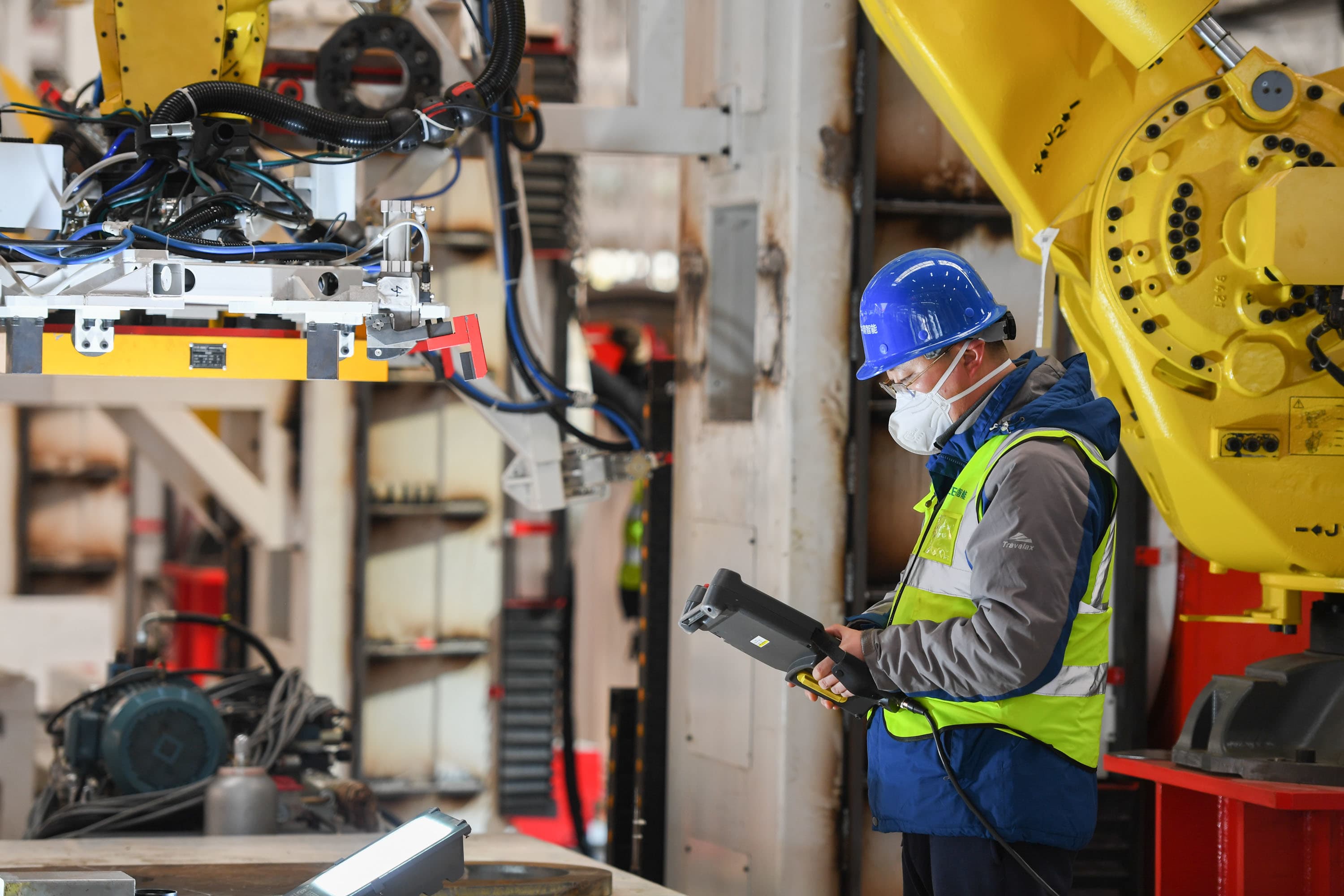
A worker debugs a robot at a Sany Heavy Industry plant in Changsha, central China’s Hunan Province, on Feb. 20, 2020.
Chen Zeguo | Xinhua News Agency | Getty Images
LONDON — Advances in robotics and artificial intelligence will lead to a net increase in jobs over the next five years but the coronavirus pandemic will result in “double-disruption” for workers, according to the World Economic Forum (WEF).
In a report published Wednesday, the organization said that the rise of machines and automation would eliminate a huge 85 million jobs by 2025. But at the same time, the WEF expects 97 million new jobs to be created, meaning an overall addition of 12 million jobs.
“There has been a slowdown in the rate of job creation,” Saadia Zahidi, managing director of the World Economic Forum, told CNBC’s Julianna Tatelbaum in a TV interview. “That’s not a surprise given the lockdowns that have been underway and the recession that has followed.”
“But at the same time, if we look at the projections that heads of HR and those at the frontlines of making these decisions are saying, we find overall the rate of job creation will still surpass the rate of job destruction.”
Nevertheless, the WEF is not complacent. The institution expects work to be divided equally among humans and machines by 2025, with computers handling much of the heavy lifting with respect to data processing, administrative tasks and routine manual jobs for white and blue collar workers.
That will require a significant level of “reskilling” and “upskilling” from employers to ensure staff are sufficiently equipped for the future of work. According to the WEF, half of all employees will need some level of retraining in the next five years.
“The window of opportunity that we have to ensure that workers have the right kinds of skills for the future just got a whole lot shorter,” Zahidi said. “We will need a lot more effort from business, government and workers themselves to ensure that they have the kind of reskilling and upskilling they need.”
‘Double-disruption’
The Covid-19 outbreak has ravaged the global economy, with the International Monetary Fund forecasting a 4.4% contraction in GDP this year due to the crippling impact of public health restrictions. The crisis has also put millions of jobs on the line, with sectors such as travel and the arts more severely affected than others.
“Automation, in tandem with the COVID-19 recession, is creating a ‘double-disruption’ scenario for workers,” the WEF said in its report. “In addition to the current disruption from the pandemic-induced lockdowns and economic contraction, technological adoption by companies will transform tasks, jobs and skills by 2025.”
The WEF also highlighted the rapid shift to remote work that came about in the spring as the health crisis led companies to close their offices. It said employers could move as much as 44% of their workforce to operate remotely but added 78% of business leaders expect current ways of working to negatively impact productivity as some industries struggle to adapt.
These are the jobs the WEF expects to be lost to machines by 2025:
- Data entry clerks
- Administrative and executive secretaries
- Accounting, bookkeeping and payroll clerks
- Accountants and auditors
- Assembly and factory workers
- Business services and administration managers
- Client information and customer service workers
- General and operations managers
- Mechanics and machinery repairers
- Material-recording and stock-keeping clerks
And here are the new roles expected to face growing demand:
- Data analysts and scientists
- AI and machine learning specialists
- Big data specialists
- Digital marketing and strategy specialists
- Process automation specialists
- Business development professionals
- Digital transformation specialists
- Information security analysts
- Software and applications developers
- Internet of things specialists




















